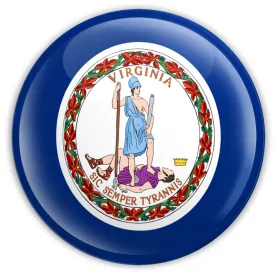Virginia Governor Ralph Northam’s Inter-Agency Taskforce on Worker Misclassification and Payroll Fraud has offered 11 recommendations in its report on employee misclassification.
In August 2019, the Governor reconstituted a taskforce charged with providing recommendations on how to “measure and combat misclassification in Virginia.” The Taskforce included representatives from several state agencies, including the Virginia Employment Commission, the Department of Labor and Industry, the Department of Professional and Occupational Regulation, and the Office of the Attorney General.
In its November 22, 2019, report, the Taskforce reiterated sentiments expressed by many other states. It criticized the use of independent contractor arrangements, stating that independent contractor misclassification “creates a competitive disadvantage for Virginia businesses that follow the law, deprives the Commonwealth of millions of dollars in tax revenues …, and prevents workers from receiving protections and benefits to which they legally are entitled.”
According to the Taskforce, “employers reduce their labor overhead as much as 40%” by misclassifying employees as independent contractors. Citing to a 2012 legislative report, the Taskforce observed that worker misclassification results in an estimated $28-million annual loss in state income tax collection alone.
The Taskforce offered the following recommendations aimed at deterring worker misclassification:
-
Formally adopt and continue applying the IRS test for employment status and assess greater penalties to dissuade worker misclassification.
-
Eliminate a good faith defense to penalties. According to the Taskforce, penalties should not be reduced or eliminated when an employer received advice and counsel on its business model.
-
Create a private cause of action that permits misclassified workers to sue for wages, taxes, lost benefits, and attorneys’ fees.
-
Provide whistleblower protection to those reporting suspected misclassification.
-
Make misclassification a sanctionable offence for Board of Contractors-licensed firms.
-
Make businesses that have misclassified workers ineligible to bid on public projects.
-
Develop uniform investigative and enforcement procedures for agencies and the Taskforce to utilize.
-
Identify a lead agency to oversee the inter-agency enforcement effort to deter misclassification.
-
Provide funding to educate and inform the public, employers, and employees on worker misclassification.
-
Allocate funds to promote investigations, increase inter-agency sharing, and hire staff to support these efforts.
-
Maintain the Taskforce to monitor and advise on these efforts.
Takeaways
Worker misclassification continues to be a hot-button topic throughout the country and Virginia is no exception. In 2019 alone, legislation relating to independent contractor misclassification were introduced at the federal level and in at least 20 states.
While the report and recommendations do not have the force of law, Virginia businesses can expect greater attention to worker misclassification and efforts to identify and investigate employers who are misclassifying workers. State agencies would be on high alert and use the full spectrum of enforcement mechanisms available to them. The stakes of losing at the agency level are high. Potentially greater fines, legal expenditures, and risk of litigation should have businesses using independent workforce arrangements in Virginia evaluating whether their model is defensible and appropriate for the services they are outsourcing to independent contractors.
The knowledgeable practitioners at Jackson Lewis are available to help your business evaluate its independent workforce arrangements, design and implement sustainable business practices, respond to agency inquiries, and defend the company against misclassification lawsuits.





 />i
/>i

